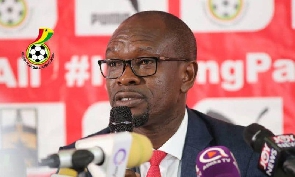Ghanaians woke up on the first working day of the year just to be greeted with 25% and 30% increment in fuel prices with a corresponding 18% adjustment in transport fares which was received with mixed reactions from the general populace. The upward review of fuel prices dates back to the 1980s, precisely under the PNDC when government realized that it was the only surest way of mobilizing revenue to tackle the yawning development deficit. This phenomenon travelled into the fourth Republic where politicians used the pricing of fuel as one of the major campaign issues.
The fuel politics gained its feet during the 2000 general elections where the then candidate Kufuor is purported to have held an empty gallon to demonstrate the quantity vis-à-vis the price of fuel (how much?) which he described then as unacceptable . The people of Ghana gave the NPP and by extension Kufuor the mandate to govern the country in 2000. Sadly and unashamedly their strident position on/ regarding fuel prices changed: Almost immediately fuel prices rocketed from a moderate 6,200 old cedis per gallon to 10,000 old cedis per gallon representing 38% increase in 2001.
The events are trendy as the 2008 general elections witnessed the playback of the 2000 elections rhythms which also captured the then candidate Mills describing the Kufuor-led government as insensitive to the plight of Ghanaians regarding fuel pricing and placing emphasis on the tax component and juxtaposing it with the crude oil price at the world market at the time. The NDC and Mills promised Ghanaians a further reduction in the prices of fuel after the NPP’s failure to secure a one-touch victory pushing the election to a run-off and the famous Tain decider.
Today, the sovereign people of Ghana have entrusted the state into the care of president Mills, and it is very disappointing that the same moribund justifications advanced by the NPP for the increment in fuel prices are virtually the same reasons the NDC is also using to support their unpopular action.
At this point, one cannot but concede that the upward fuel price fixing has become a pendulum oscillating between the NPP and the NDC with same old, weird arguments of fluctuations in the world market prices of crude oil, the over-burdened Tema Oil Refinery leading to the suffocation of Ghana Commercial Bank, smuggling of the product into neighbouring countries and a host of others which are just unthinkable.
However, it is appropriate to salute president Mills for openly acknowledging during his recently held Editors Forum that we need money for the teeming development shortfalls constantly demanded by people in the areas of accessible health care, quality education, mechanized agriculture, motorable roads, decent housing and many others.
It is equally worrisome to learn that monies accrued from the taxes on fuel legally meant for retiring the debt of the Tema Oil Refinery was illegally used by the then government for the implementation of her communication strategy. This is one of the precipitants of the 30% upsurge in fuel prices which the majority of poverty- bracketed Ghanaians are made to suffer the more for no fault of theirs.
We need to be very vigilant this time to ensure that the TOR debt is quickly redeemed by government. There is no reason for another misapplication of it by greedy politicians to satisfy their parochial and selfish political interest. The trickle-down effect of the increment is grave enough and has the propensity to push industry backwards and saddle unemployment, which is already cancerous to the Ghanaian economy.
I find it odd, even outrageous for government to subsidize fuel and cannot reconcile the wisdom behind it. It is just not acceptable for government to continue to partly pay for fuel for people who ride in fifty dollar cars to the detriment of the suffering masses who make do with public transport.
I wish to offer a suggestion that coupons should immediately be designed for all public transport unions so that they can buy fuel at a discount to ease the suffering of majority of Ghanaians who use public transport. In like manner, the increase in fuel prices with corresponding adjustment in transport fares should not only be published in percentage terms but announced in detail with spontaneity to avoid the usual brawl that often ensue between public transport drivers and commuters.
It is unpalatable to hear that prices of fuel will go up by next week and it behoves the NPA to constantly explain the dynamics of the fuel business to Ghanaians either than letting it be always shrouded in secrecy. This in my candid estimation will spare us the intransigent hot and cold politics of it by the NDC and NPP.
Opinions of Saturday, 12 February 2011
Columnist: Banamini, David A.














